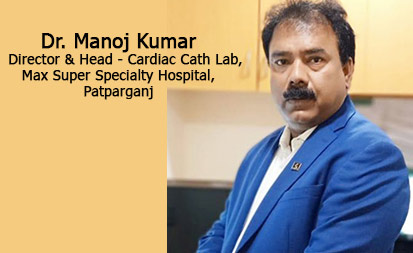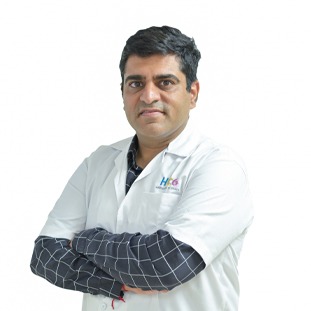Healthy habits must be formed during a young age to avert the risk of heart diseases
Cardiac care, avoiding panic, and timely management are key to averting complications A study that analysed trends cardiovascular disease mortality in different countries including India has found rising incidence of heart diseases.[1] Among the factors that can

Cardiac care, avoiding panic, and timely management are key to averting complications
A study that analysed trends cardiovascular disease mortality in different countries including India has found rising incidence of heart diseases.[1] Among the factors that can exacerbate the risk include physical and mental strain in patients with diabetes, hypertension or tobacco habits, which can even lead to heart attacks. There is a need to raise awareness on cardiac care, reducing anxiety, and timely management, especially during the COVID-19 pandemic.
Preventive healthcare is the need of the hour for managing heart diseases among patients, especially in those with a family history of this condition. The cornerstones of cardiac care include eating healthy, timely health checks, regular physical activity, and avoiding habits like smoking and drinking.
Speaking about this, Dr. Manoj Kumar, Director & Head – Cardiac Cath Lab, Max Super Specialty Hospital, Patparganj, New Delhi, said, “Heart diseases have emerged as a major cause of public health concern in India. The approach to managing these conditions will need to shift from cure to care, apart from personalised health management programmes. This prevention must start from adolescence given how even youngsters are susceptible to lifestyle diseases today. Estimates by the WHO suggest that about 70% of premature deaths in adults are the result of risk factor behaviours that begin during adolescence and youth. Medical science has advanced and there are tools to diagnose, manage, and treat heart diseases, apart from non-invasive techniques that have positive health outcomes in people who develop heart complications.”
As per recent statistics, about 73% of the COVID-19 deaths in India are linked with comorbidities including diabetes, hypertension, cardiovascular and respiratory diseases.[2] This makes lifestyle changes and prevention even more important.
Adding further, Dr Manoj Kumar, said, “People must be aware of the warning signs. In case there is chest pain with sweating, breathlessness or giddiness, do not ignore it and contact a specialist immediately. Women present with different symptoms and should be more careful. Given how people with pre-existing health conditions are more vulnerable to the current COVID-19 pandemic, it is imperative to follow protocols and maintain social distancing.”
Some treatments for heart-related complications include Angioplasty and Coronary Artery Bypass Surgery (CABG). In CABG, the surgeon creates a graft to bypass blocked coronary arteries using a vessel from another part of the body. This allows blood to flow around the blocked or narrowed coronary artery. Angioplasty helps in restoration of and improvement in blood flow. In this process, the surgeon inserts a long, thin tube (catheter) into the narrowed part of the artery. A thin wire mesh (Stent) mounted on a deflated balloon is then passed through the catheter to the narrowed area. The balloon is inflated, compressing the deposits against the artery walls and leaving the expanded stent embedded in the artery. There are stents approved by the USFDA and extremely safe even in patients with other complications.
Some tips for inculcating healthy habits right from adolescence to avert the risk of heart problems.
- Encourage healthy eating habits right at the onset. Try making favorite dishes healthier. Few changes can make even snacks healthier.
- Avoid tempting children with calorie-rich food. It is okay to treat them but in moderation and by limiting high-fat and high-sugar or salty snacks.
- Make kids understand the importance of being physically active. Indulge in at least 60 minutes of moderate to intense physical activity every day.
- Reduce sedentary time. While reading is a good option, too much of screen time is not. Replace screen time with the outdoors and fun activities to keep children engaged.






